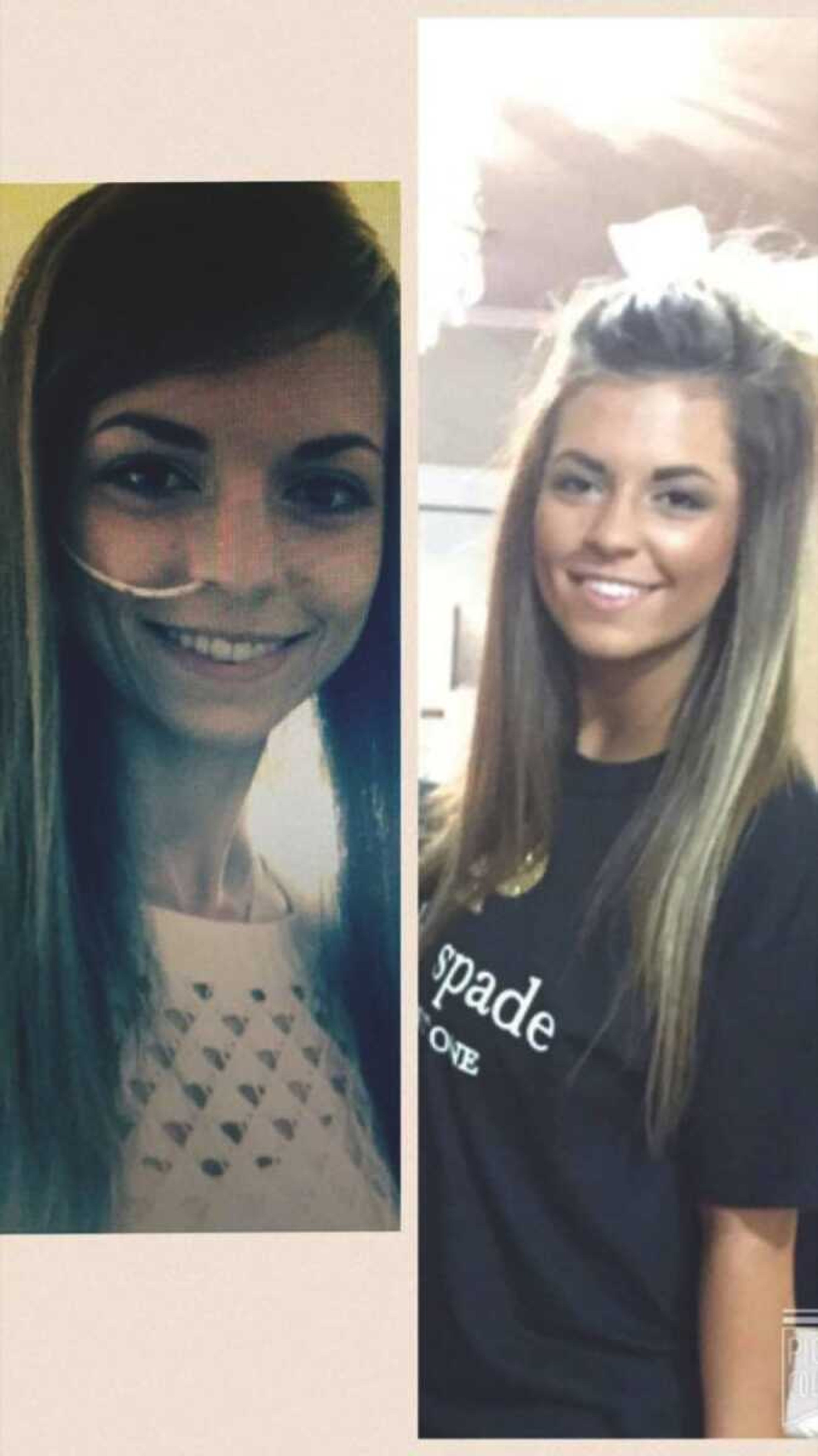Southeast supports NEDAW with week of on-campus events
Imagine having a worst fear that is necessary for survival. That was the case for Southeast Missouri State University sophomore Haley Eck as she battled anorexia for two years. It all started her junior year of high school at the age of 16 while training for different athletic teams and working toward a soccer scholarship. Her excessive workouts and strict diet eventually led to not only cutting out unhealthy foods, but all foods. Haley lost 60 pounds in one month on this diet...
Imagine having a worst fear that is necessary for survival. That was the case for Southeast Missouri State University sophomore Haley Eck as she battled anorexia for two years.
It all started her junior year of high school at the age of 16 while training for different athletic teams and working toward a soccer scholarship. Her excessive workouts and strict diet eventually led to not only cutting out unhealthy foods, but all foods. Haley lost 60 pounds in one month on this diet.
At this point, she went to see a doctor and therapist who placed her on a meal plan to start gaining her weight back. If she did not gain a certain amount per month, she was not permitted to play basketball -- one of the many sports she was involved in. Eck did not play her junior or senior years.
"Once you're in [an eating disorder] it's like it completely takes you over. I never smiled, I was never happy. I never wanted to do things and hang out with my friends like I used to," Eck said.
Once soccer season came around, she no longer enjoyed it. Eck was extremely sick and would go up to three days without eating food, only to replenish with something as small as an apple.
After one game, Eck was worse than usual and refused any food offered to her. It was at this point her mother decided to get her more advanced treatment.
She went many places for treatment, but her first stop was in Arizona at an in-patient center for eating disorders.
"It was really hard, I never thought I would ever go through anything like that," Eck said.
Going through treatment, though, she realized her disorder was triggered by more than just excessive dieting, but also a lot of personal obstacles she had in her life. As her health continued to decline, she traveled to different treatment centers in St. Louis and Wisconsin. She missed her entire senior year of high school.
Eck kept up with her school work at the treatment centers and eventually graduated.
She planned to come to Southeast in the fall of 2014. But, not yet healthy, her parents decided to put her through more treatment. While at Castlewood Treatment Center in St. Louis, she was given a feeding tube and forced to eat six times a day. Eck was 5 feet 7 inches and weighed only 80 pounds.
Her eating disorder affected her in more ways than one. She was diagnosed with hepatitis in the liver due to starvation, depression, had a standing heart rate of 30, had her gallbladder removed and developed osteopenia, a disease where the bones weaken due to lack of nutrients.
Eck's treatment started to reach the end of the line, however, when her insurance cut out, leaving her family unable to keep paying for her treatment. Her mom picked her up from Castlewood and told her this was her last time, it was all she had left. It was at this time Eck found something in her to start eating again. She gave up not eating one week at a time and eventually made her way back to a stable eating schedule.
"I don't believe in the word 'recovered,' I believe in the word 'recovery.' I am going to be in recovery my whole life," Eck said.
The most deadly mental disorders in the nation are eating disorders. That is why, for a week out of every year, America holds a National Eating Disorders Awareness Week. This year, it is Feb. 22 through 27. The theme is "3 Minutes Can Save a Life," regarding eating disorder screenings that help catch symptoms in patients.
Southeast has been a proud sponsor of NEDAW for more than 20 years. The university hosts speakers, a recovery panel and activities to get all students involved.
Counseling and Disability Services will offer free and anonymous eating disorder screenings throughout the week as well to help determine one's risk of developing an eating disorder.
"It's really hard for people to understand, it's hard for me to understand," Eck said. "I sound crazy, I should just eat the food. Think of your biggest fear. Whether it be spiders or dying or whatever it may be, that's how it is for someone who has an eating disorder sitting down and about to eat a meal."
National Eating Disorder Awareness Week is in place to help people better understand eating disorders and make everyone aware of how serious they are and how they can affect anyone.




